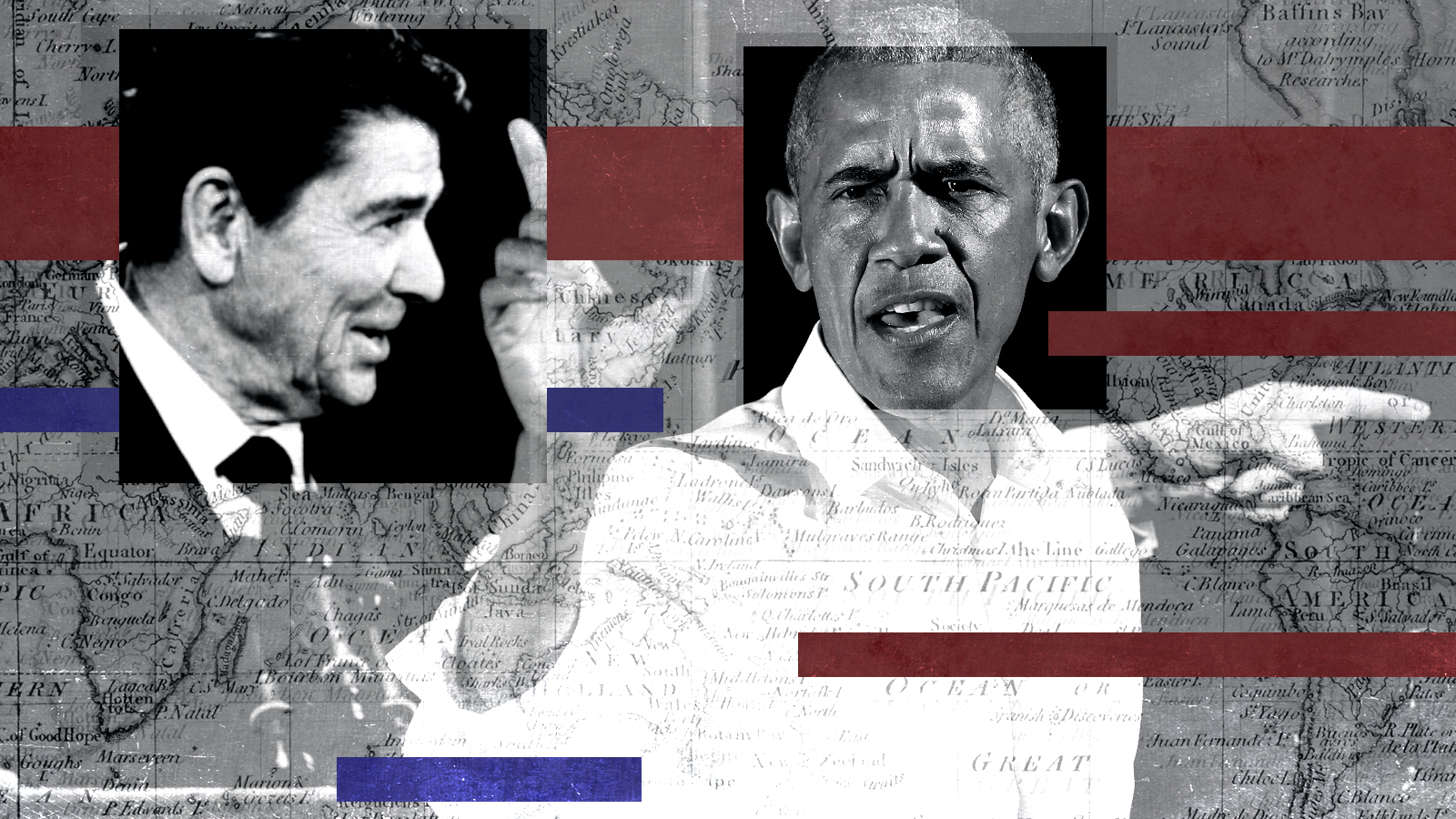The strongest evidence yet that the neoliberal era is over


A free daily email with the biggest news stories of the day – and the best features from TheWeek.com
You are now subscribed
Your newsletter sign-up was successful
Joe Manchin's stance on the filibuster might get a lot more people talking, and negotiations over Joe Biden's spending bills might garner far more attention from the Washington press corps, but a bill poised to pass the Senate on Tuesday by a wide bipartisan margin is arguably a far bigger story than either. The New York Times calls it "the most expansive industrial policy legislation in U.S. history," and it may be the strongest evidence yet that the neoliberal era in American politics is dead and buried.
From the Reagan administration on down through the Obama years, both parties inclined toward favoring free trade. The rationale was two-fold. Dropping barriers to trade — opening markets to goods and labor — would lead to economic growth that would benefit everyone. It would also help to plant seeds of political liberalism in places that had so far resisted the lure of the open society.
The left was always somewhat skeptical of the first claim, because of the tendency of free trade to encourage companies to ship high-paying jobs overseas. Donald Trump won the presidency in 2016 in part by taking up such arguments from the right. Half a decade later, the position has largely carried the day on both sides of the aisle.
The Week
Escape your echo chamber. Get the facts behind the news, plus analysis from multiple perspectives.

Sign up for The Week's Free Newsletters
From our morning news briefing to a weekly Good News Newsletter, get the best of The Week delivered directly to your inbox.
From our morning news briefing to a weekly Good News Newsletter, get the best of The Week delivered directly to your inbox.
But what's really tipped the scales is a collapse of faith in the second set of arguments — about the power of open markets to spread political liberalism, with China the main catalyst of the decline. The new bill is primarily about giving the United States an added edge in commercial and military competition with Beijing at a time when China is widely viewed as our greatest geopolitical adversary and economic rival.
No longer believing that free trade will bring China into the fold of the U.S.-led liberal international order, we now firmly favor putting America, and American manufacturing and research, first. That is an enormous change from 20 years ago — and the biggest sign yet that the neoliberal moment in American politics is over, with a new, more nationalist era still rising.
A free daily email with the biggest news stories of the day – and the best features from TheWeek.com
Damon Linker is a senior correspondent at TheWeek.com. He is also a former contributing editor at The New Republic and the author of The Theocons and The Religious Test.
-
 Quentin Deranque: a student’s death energizes the French far right
Quentin Deranque: a student’s death energizes the French far rightIN THE SPOTLIGHT Reactions to the violent killing of an ultra-conservative activist offer a glimpse at the culture wars roiling France ahead of next year’s elections.
-
 Secured vs. unsecured loans: how do they differ and which is better?
Secured vs. unsecured loans: how do they differ and which is better?the explainer They are distinguished by the level of risk and the inclusion of collateral
-
 ‘States that set ambitious climate targets are already feeling the tension’
‘States that set ambitious climate targets are already feeling the tension’Instant Opinion Opinion, comment and editorials of the day
-
 ‘States that set ambitious climate targets are already feeling the tension’
‘States that set ambitious climate targets are already feeling the tension’Instant Opinion Opinion, comment and editorials of the day
-
 Grand jury rejects charging 6 Democrats for ‘orders’ video
Grand jury rejects charging 6 Democrats for ‘orders’ videoSpeed Read The jury refused to indict Democratic lawmakers for a video in which they urged military members to resist illegal orders
-
 Democrats push for ICE accountability
Democrats push for ICE accountabilityFeature U.S. citizens shot and violently detained by immigration agents testify at Capitol Hill hearing
-
 Big-time money squabbles: the conflict over California’s proposed billionaire tax
Big-time money squabbles: the conflict over California’s proposed billionaire taxTalking Points Californians worth more than $1.1 billion would pay a one-time 5% tax
-
 Will Peter Mandelson and Andrew testify to US Congress?
Will Peter Mandelson and Andrew testify to US Congress?Today's Big Question Could political pressure overcome legal obstacles and force either man to give evidence over their relationship with Jeffrey Epstein?
-
 Did Alex Pretti’s killing open a GOP rift on guns?
Did Alex Pretti’s killing open a GOP rift on guns?Talking Points Second Amendment groups push back on the White House narrative
-
 Rep. Ilhan Omar attacked with unknown liquid
Rep. Ilhan Omar attacked with unknown liquidSpeed Read This ‘small agitator isn’t going to intimidate me from doing my work’
-
 Washington grapples with ICE’s growing footprint — and future
Washington grapples with ICE’s growing footprint — and futureTALKING POINTS The deadly provocations of federal officers in Minnesota have put ICE back in the national spotlight
